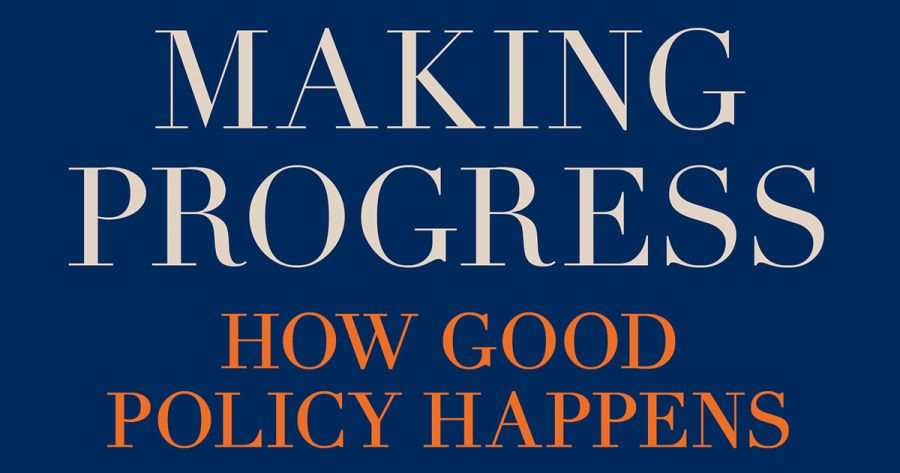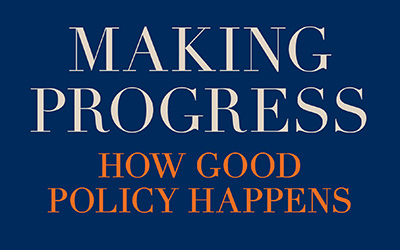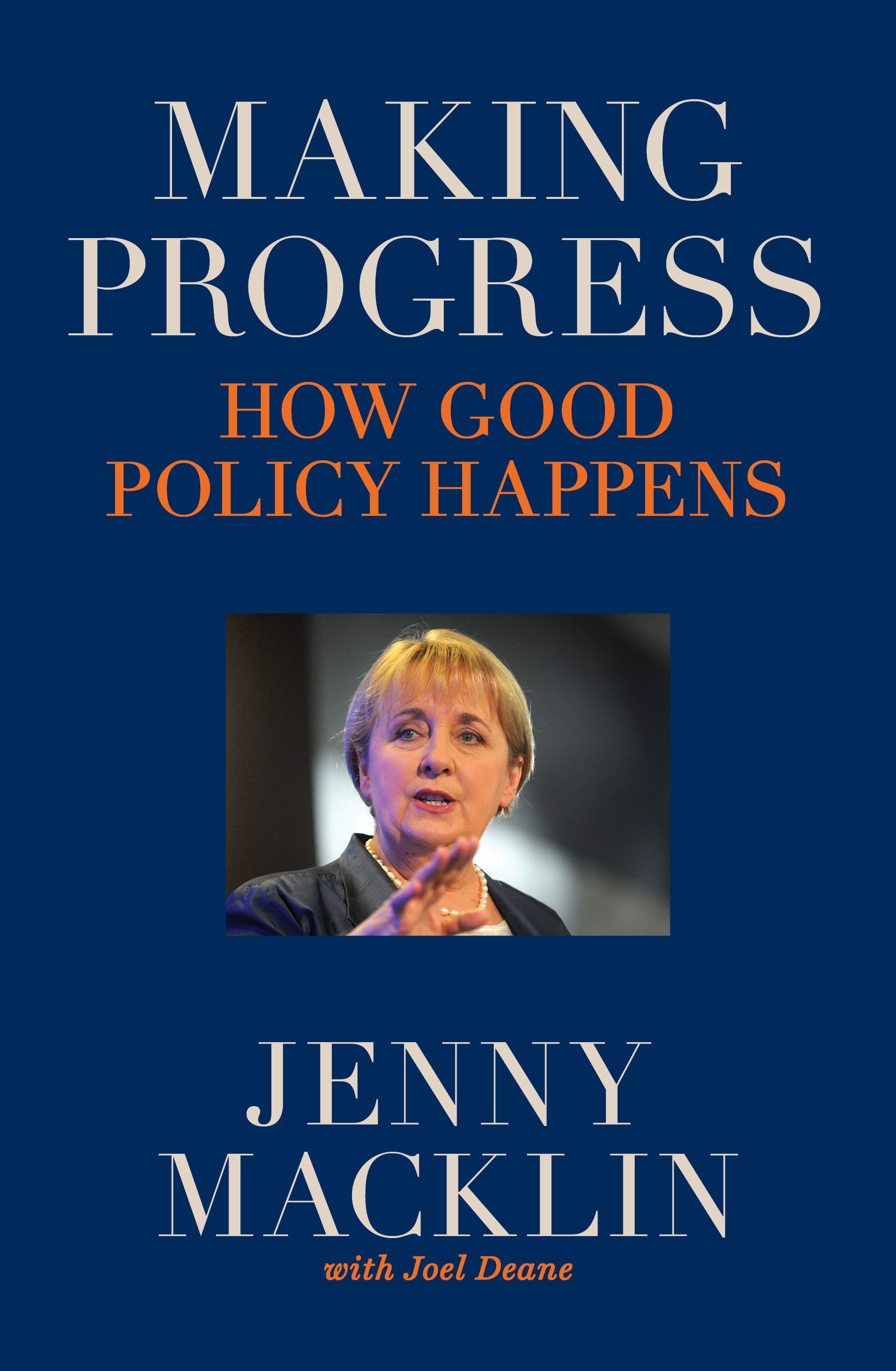
- Free Article: No
- Contents Category: Memoir
- Review Article: Yes
- Article Title: Ministerial workhorse
- Article Subtitle: A munificent political memoir
- Online Only: No
- Custom Highlight Text:
Jenny Macklin was an unusual politician, so it should not surprise that hers is an unusual political memoir. Anyone looking to Making Progress for salacious tales from the internecine warfare of the Rudd-Gillard Government, in which Macklin was a senior minister, will be disappointed. Macklin is widely regarded as the most serious policy thinker among her generation of Labor politicians, and this account of her career, written in collaboration with Joel Deane, will only enhance that reputation. It is a book for policy wonks, and one that is perfectly timed to remind readers that, for all the sound and fury of the recent election campaign, government is a serious business.
- Featured Image (400px * 250px):

- Alt Tag (Featured Image): Emma Dawson reviews ‘Making Progress: How good policy happens’ by Jenny Macklin with Joel Deane
- Book 1 Title: Making Progress
- Book 1 Subtitle: How good policy happens
- Book 1 Biblio: Melbourne University Press, $36.99 pb, 277 pp
- Book 1 Cover Small (400 x 600):

- Book 1 Cover (800 x 1200):

- Book 1 Readings Link: https://www.readings.com.au/product/9780522866872/making-progress--jenny-macklin-joel-deane--2025--9780522866872#rac:jokjjzr6ly9m
Despite her significant achievements as a minister and the first woman to hold a federal leadership position in a major Australian political party, Macklin does not indulge in claiming victories or settling scores. Her focus is relentlessly, and refreshingly, on the processes of policymaking and how to achieve progress for the country; there are no personal anecdotes that don’t serve to enhance that focus.
Nevertheless, there is enough in the early chapters to provide insight into what drove Macklin, a self-described ‘country kid’, to become a genuine force in progressive policy making and, ultimately, a Cabinet minister in the federal government. That driving force appears to be an insatiable curiosity about how the world works, complemented by a deep empathy that was ignited during a student exchange trip to Japan in her mid-teens. This experience, Macklin writes, removed her ‘cultural blinkers’ and gave her an understanding of ‘what it means to be the other, to not be part of the mainstream’; an understanding that, she writes, ‘still informs my commitment to social justice today’.
There are few other details of Macklin’s early life. Her move to Canberra after taking an economics degree at Melbourne University, where she found the feminists ‘loud, confident and very aggressive’, introduced her to the ‘Red Fems’, an ‘informal think tank’ of left-leaning women who were ‘hungry for new ideas and change’. These women, and those years spent with them on a kind of weekend, feminist kibbutz at an old farm called Tarlina in New South Wales, were the basis of ‘epic times’, Macklin writes, a period that ‘shaped the trajectory of [her] life’.
Similarly, the story of meeting her partner of more than forty years, Ross Turner, is related briefly in the context of her shift out of academia and into applied policy research in Melbourne, while the experience of becoming a parent is positioned as formative for her decades-long commitment to pursuing paid parental leave.
These early personal stories soon give way to what is essentially a guidebook on how to develop, implement, and embed serious policy reforms. Macklin has had a hand in most of the significant social policy achievements of the past three decades: her early work as a researcher and adviser to Victorian state minister David White and, later, Federal Minister for Social Security Brian Howe, saw her contribute to policy frameworks in health and social security, including the creation of Medicare and the social services reforms of the early 1990s.
As a minister in the Rudd and Gillard governments, she worked on big policy programs, from the establishment of paid parental leave to the creation of the National Disability Insurance Scheme (NDIS). Her six years as a minister, she writes, were ample reward for more than two decades of hard work as an adviser and an opposition MP learning the policy trade. Given the lasting outcomes she achieved, it is hard to argue with that assessment.
 Jenny Macklin (courtesy of Melbourne University Publishing)
Jenny Macklin (courtesy of Melbourne University Publishing)
Macklin’s telling of these achievements is a little disjointed. The narrative jumps around between different issues and timelines, creating a slightly confused account of her years as a Cabinet minister. This section of the book reads like a stream-of-consciousness missive from the frontline of some intense conflict, and Deane’s hand can be detected pulling Macklin’s various recollections together into a more coherent narrative.
These chapters do, however, effectively create the sense of almost overwhelming frenzy that accompanies the job of being a Cabinet minister in a new government with a significant reform agenda. Macklin describes her office as ‘like the eye of a cyclone’ as she and her staff grappled with what she calls ‘multiple mega-issues’, including tackling the fallout from the Howard government’s disastrous Northern Territory Emergency Response, implementing Closing the Gap initiatives, negotiating a response to the Global Financial Crisis, introducing pension reforms, legislating government paid parental leave, and establishing the NDIS. That her account of this time is slightly frenetic reflects the feverish pace of policy reform demanded of Macklin and her office during her time as a minister.
Along with its focus on policy, the element of this absorbing book that sets it apart from the usual political memoir is Macklin’s insistence on sharing the credit for her many achievements. She refers constantly to her mentors, especially Brian Howe, and the friends she leant upon in parliamentary ranks. She also includes long quotes from her former staff, allowing them to detail their own contributions to policy development and the negotiation of legislative outcomes in what became, after the 2010 election, a hung parliament.
In the same vein, Macklin is careful to credit the work of the public servants in the various departments for which she was minister. She is at pains, at every point in this memoir-cum-handbook, to detail the contributions of what are known in politics as ‘constituents and stakeholders’ – that is, the people governments are meant to serve. Particularly generous are her reflections on the input of disability advocates into the design of the NDIS and on First Nations work to improve outcomes under the Closing the Gap framework. This approach demonstrates one of her central theses: effective policy making is always a team effort.
To underline that point, Macklin devotes the second half of her book to highly informative interviews about policymaking with experts she has worked with, including Howe, Julia Gillard, Bill Kelty, Pat Turner, Tanya Plibersek, Wayne Swan, Greg Combet, John Thwaites, and Laura Tingle
Such munificence is a rare quality among retired politicians, who too often use the opportunity afforded by autobiography to indulge in a vainglorious twisting of history that paints the author as the sole protagonist of progress. That Macklin has eschewed this well-worn path is entirely consistent with her career as what she calls ‘one of Labor’s ministerial workhorses, focusing more on systemic change than day-to-day politics’.
The result is a book that may lack the typical narrative of the hero’s journey expected of a political memoir, but which is, as a result, infinitely more illuminating about the workings of parliament and just how hard it is to achieve meaningful, lasting reform. It is also a very useful book, one that should be on the desk of every parliamentarian and all their staff as they start the work of the forty-eighth parliament of Australia.


Comments powered by CComment